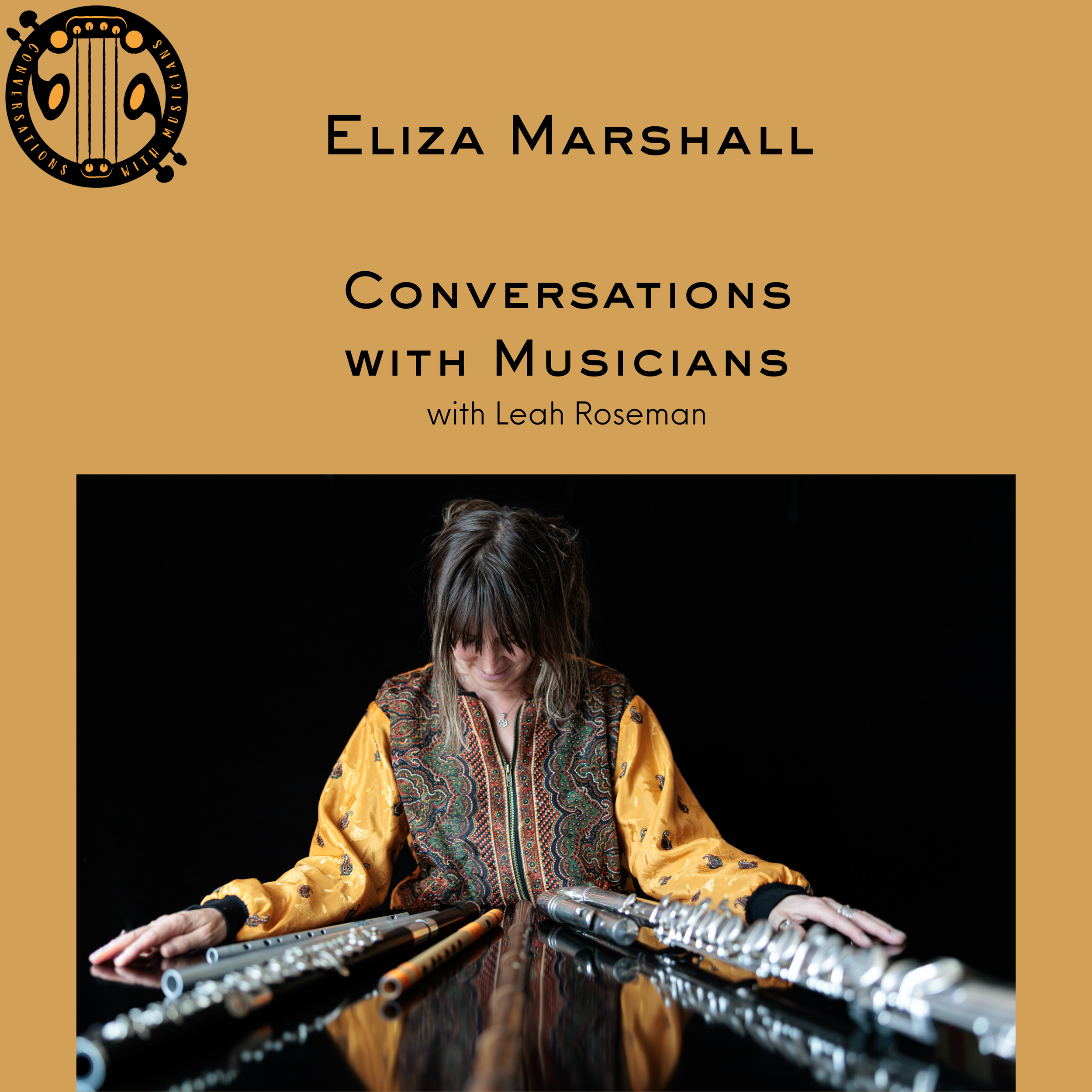Eliza Marshall
British flautist and composer Eliza Marshall joins me to celebrate her new album Eternal Birth — a bold, genre-defying project blending classical, folk and world traditions into a rich cinematic soundscape. Recorded in the UK and Senegal, the album features haunting flutes, whistles, bansuri, spoken word, percussion and electronics, alongside an exceptional cast of world-class and Grammy-winning musicians. Eliza shares stories from her wide-ranging career — from The Lion King and touring with Peter Gabriel to loop pedals, Ranagri, and her project Freedom to Roam — as well as reflections on creativity, risk-taking, re-wilding, and living a deeply connected musical life.
Maya Youssef
I’m delighted to welcome Maya Youssef, the world-renowned kanun master and innovative British-Syrian educator. Maya shares with us how her frustrations with the traditional teaching of Arabic music led her to develop her unique system for teaching musicians and dancers in a completely different way. She also shared her past personal crisis as a victim of domestic abuse and how she found the strength to get out of that danger, which is shockingly pervasive. In fact, she said that she chooses to be vulnerable in sharing this because we never know who is listening.
You will be uplifted with clips from Maya’s beautiful second album Finding Home, which I encourage you to buy, and you’ll find all Maya’s projects linked in her website in the show notes of this podcast. She also talked to me about her exciting upcoming projects in 2026, including her book about learning and teaching Arabic music, her upcoming album and tours, and her wonderful collaborators. Maya spent the interview with her kanun and you’ll hear her demonstrate several times, including a beautiful improvisation on maqam rast.
Like all the episodes of Conversations with Musicians with Leah Roseman, you can either watch the video version on my YouTube or listen to the podcast on your preferred platform; the transcript is linked here along with several other episodes I think you’ll love as well.
Mohamed Assani
The innovative sitarist and composer Mohamed Assani is featured in this episode, linked here is the podcast, video and transcript. Mohamed demonstrates on both sitar and tabla, speaks to me both about his own journey as a musician and about the history of the sitar and South Asian music. In this conversation a couple of compositions from his album Wayfinder are featured. Wayfinder inco rporates a range of stylistic influences, including South Asian Classical, Middle Eastern, jazz, funk, Western Classical, ambient & electronic music. Mohamed shares his perspectives as an educator and creator: “So sitar to me will always be a challenge, right? Music is bigger than us, I believe. So if I can do something like that, what do I learn from it? It just gives me a lot of things to reflect about me as a person. So you start having these kinds of conversation with yourself, and once you accept that whoever you are is going to show on the stage, and that happens, right? So then maybe you start fine tuning some aspects of yourself.”
Verna Gillis
It’s hard to sum up how important Verna Gillis has been for music lovers. First of all, she is an ethnomusicologist who recorded traditional music around the world .This episode will bring you along on some of these journeys. 25 of these recordings are available through Smithsonian Folkways and Lyrichord, and I’m very grateful to Smithsonian Folkways for allowing us to use some of these tracks for this specific episode. In 1979 Verna opened Soundscape, the first multi-cultural performance space in New York City, which put on hundreds of performances over 5 years. You’ll also hear Verna reminisce about her work on career development with phenomenal international musicians including Youssou N’dour from Senegal, Salif Keita from Mali, and Carlinhos Brown from Brazil. As a producer, Verna was twice nominated for a GRAMMY award for two of the albums she produced with Roswell Rudd. She’s also a writer and spoken word performer. We’ve included in this episode one of her recent spoken word videos with British musician Jennifer Maidman. There’s so much more in this episode, and I hope a wide audience will be inspired by Verna Gillis’ reflections on her remarkable life in music.
Hristina Beleva: Gadulka player
This episode features the wonderful Bulgarian gadulka player Hristina Beleva. This episode would not have been possible without the generous translation and voice-overs from fellow musician Milena Krassi. Milena was with us during the interview and it’s mostly her voice that you’ll be hearing. Hristina is a virtuoso of the traditional bowed instrument of Bulgaria, the gadulka, which looks a bit like an upside-down violin, with usually 3 main strings and several resonating strings, up to 16. Hristina performs as a soloist with the Ensemble Philip Koutev Folk Orchestra of the Bulgarian National Radio, the Mystery of the Bulgarian Voices, Bulgara, the Milanov-Beleva duo, and is featured on the 2019 Grammy nominated album with David Kuckhermann and Lisa Gerrard, “Hiraeth”. Hristina recently released a wonderful duo album with bass player Vasil Hajigrudev, “Trikop”. This episode features lots of music, and we talk about both traditional music and her fusion collaborations.





